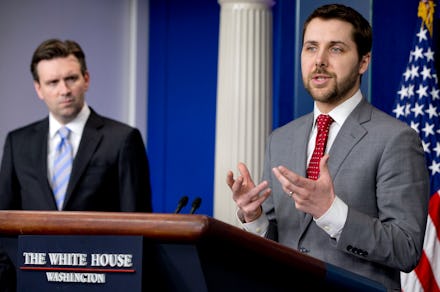Obama adviser explains just how much went into the Paris agreement — and what we'll lose by leaving

Brian Deese served as a senior climate adviser to former President Barack Obama and was one of the chief U.S. negotiators for the Paris climate agreement.
He knows just how much painstaking work went into the historic accord — and what's at risk now that the U.S. is leaving it.
Trump revealed his plans to pull out of the landmark agreement in a White House press conference Thursday, much to the dismay of lawmakers, scientists and allies who urged Trump to stay in the deal.
The Paris agreement is a massive global effort to tackle the devastating effects of climate change and to curb greenhouse gas emissions worldwide. The agreement was signed by 195 countries in a powerful feat of diplomacy and international cooperation.
According to Deese, it almost didn't happen.
"I think what most people don’t appreciate about the Paris agreement is that it was really hard to get it across the finish line," Deese told Mic on Wednesday. "All of the negotiators were in Paris in this deconstructed airplane hangar outside of the city ... so there we were, in Paris at four in the morning, having President Obama making phone calls at 10 o'clock at night back in Washington, D.C., calling the president of China [at] 10 a.m. China-time," he said.
Deese said it took "several all-nighters in a row" for negotiations to come together, but ultimately "everything fell into place."
The success of the Paris climate agreement was seen, at the time, as a "signature accomplishment" for Obama and the high point of his legacy on climate change. With one move, Trump undid one of Obama's major successes in a blow to both the U.S. economy and its reputation on the world stage, according to Deese.
"Clean energy is a fast-growing sector of the American economy, and if we step away and the rules of the road are written without the United States' input, we’re going to be set back economically," Deese said.
His concern, he said, is that by leaving the Paris agreement, Trump only gives ammunition to those who say America's role as a global leader is on the decline.
"As China and other countries step up and provide global leadership, America's retreating and America's walking away," he said.
According to Deese, there's still hope for progress, but local cities and communities will now have to step up and lead. Together, New York and California make up the world's fourth-largest economy, he said, meaning state governments can have major influence on climate policy.
"Even if this administration isn't willing to lead, we can still see leadership from America and we can still work to try to bring clean energy here," Deese said.